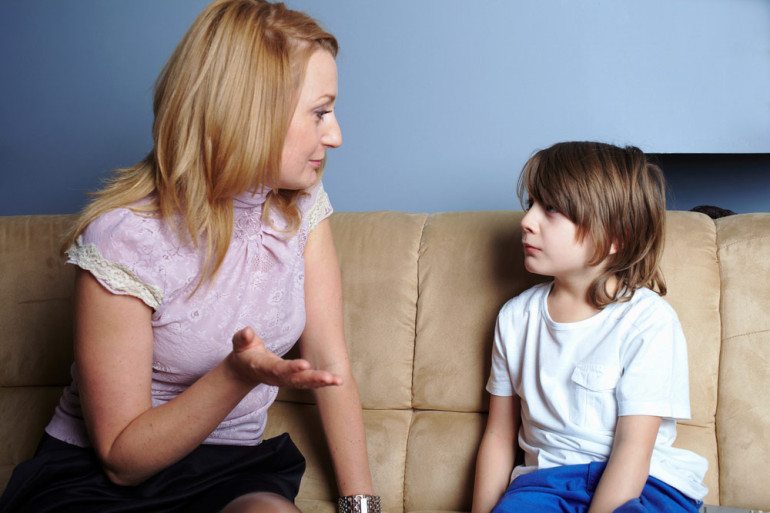How To Talk To Your Children About The Bombings At The Boston Marathon
Tags: communication, mental health, safety
The bombings at the finish line of the Boston Marathon have rocked the nation. Many children overheard their parents talking about it or caught a glance of the news coverage. If the car radio was on during the drive home from school you may not have even considered that the little ears in the back seat were tuning in too.
How does a parent effectively discuss the event of today? I have a few suggestions, based on some psychological tenants to help guide you.
1. Young Children Don’t Need to Know World News
Young children don’t need to know world news. Their world is their home life and that’s big enough! Parents need to create barriers to media and filter information.
You may think that your nine-month-old is too young to understand what you are watching on the news, but research shows youngsters are impacted by upset facial expressions and other stressful visual images that accompany the news. Best practice: turn off the tube.
Instead of TV and radio, read the media coverage giving updates on the progress of the investigation via feeds and online updates. Protect your child from potential vicarious trauma that can occur from accidental news consumption.
2. Clarify Misunderstandings
If you think it’s likely that your child heard something about the bombings, ask them what they understood happened. Be sure they explain using their own words. You may be surprised to hear what they put together in their own minds. It gives you an opportunity to correct their misunderstandings. For example:
“Mommy, I don’t want you running in your race next weekend in case you get hit by a bomb too.” Expect questions of this type. Your job will be to explain that this explosion was a freak incident and that we are all safe. This event was upsetting because it was so rare and random. Explain that while we are sad it happened, it’s not worth spending one ounce of energy worrying about it ever happening again. The police are looking for who ever did this and they will be found and put in jail where they can’t do this again.
3. Your Emotions Are Educational Too
Your child looks to you to see how you are reacting in order to make their own assessment of how frightening the day’s events where. If you are very upset and anxious, you are broadcasting that the situation is severe and scary. If you have an empathetic disposition, your children will likely adopt that emotional stance instead.
4. Re-Instill a Sense of Safety
Your child’s world view that life is safe and predictable may have been shattered. We must re-assure our children that the world is still a safe place. To do that, discuss the positives; such as how responsive the police and president where. How the people in the crowd pitched in to help one another. Maintain your own family routines and be especially calm, caring and warm.
5. No Lies — But Be Selective in The Amount of Details
Because children need to feel safe, they need to believe their parents wouldn’t deceive them. It’s important to always model being truthful in our interactions with others. In fact, being truthful sends a message of confidence in their ability to handle life. When we lie, we are basically giving the child a vote of non-confidence.
6. Decide How Much To Pass Along
Adapt the amount of information you are sharing by age appropriateness and your child’s needs by moving from the broadest of brushstrokes to the finest of details. Here are three such examples:
“We are all very upset because today there was a big explosion that hurt a lot of people” might be enough for a preschooler.
“Today a bomb went off near the finish line of a big running race and lots of people had to be taken to the hospital and three even died.” This is a suitable description for a child in elementary school with no access to social media.
“Today at the Boston Marathon there were two simultaneous bomb explosions along the route towards the finish line. Lots of people were hurt, and three have died (including an eight-year-old). The police are investigating who perpetrated this crime which is being considered an act of terrorism. It’s a terrible tragedy since it was innocent civilians who were targeted.” This more robust description could be the starting point for a deeper conversation with an older youth who is developing their own ideas about justice and societal issues in general.
7. Help Children Process
If your child is upset or moved by the events of today, invite them to channel their emotions into thinking of constructive ways to be helpful. Perhaps they want to write a card, send a letter, hold a vigil, say a few words, or a prayer, light a candle, place flowers somewhere symbolic, donate money from their piggy bank or anything else that moves the child and helps reduce feelings of meaninglessness. Actions such as these also serve as a way to regain a sense of control of one’s own life and emotions are re-establish our sense of being able to keep ourselves safe.
There will be days of news still ahead. I hope you feel more confident in how you’ll broach this subject with your children.



One Response to “How To Talk To Your Children About The Bombings At The Boston Marathon”
the unlimitedskill
wow so amazing writing and beautiful and helpful for childs